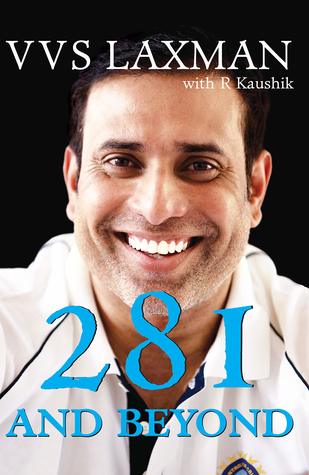More on this book
Community
Kindle Notes & Highlights
Kolkata is very dear to me. Here, an aura of sheer happiness seems to surround most people. While most of us constantly look over our shoulders or are so caught up in the race to be the best that we often don’t take notice of the smaller things, the simple pleasure that the average Kolkatan derives from the most ordinary activities is something that I never stop marvelling at.
Cricket is of course a game of bat and ball, with skills paramount, but it is also a game that is played between the ears. The more relaxed and focused you are, the better are your chances of succeeding.
There is a very thin line between being focused and being obsessed. The former entails attention to detail during preparation, reading the pitch and the opposition bowling, being ready for any eventuality, and feeling confident that you have done everything within your means to give yourself the best shot at scoring runs. The latter is all-consuming and takes your mind away from the larger picture, from the process, as it were. If all you are thinking about is the outcome, the processes get skewed.
Indian crowds tend to be the noisiest, the most boisterous, the most passionate, and I say this with due respect to the cricket-mad fans in Bangladesh and the papare-driven spectators in Sri Lanka. Not for us the polite applause and the let’s-get-back-to-our-beers. We love to express ourselves, aloud and without inhibition, and we let the whole world know what we are made of and who we are supporting.
When so many people are genuinely hoping and wishing and praying for your success, how can you not walk the extra mile to keep those smiles on their faces? How can you let them down for want of effort and commitment? These people taught me another invaluable life-lesson—enjoy your friends’ happiness, your teammates’ success, as if it’s your own.
‘The profession doesn’t glorify you, you glorify the profession. We are serving Mother India through medicine, you serve her through cricket.’
Chapter 12, Bhakti Yoga, speaks of, among other things, giving one’s best every single time and not worrying about the results; remaining equanimous in victory and defeat, in success and failure.
As I grew older, I realised that the origins of many of today’s success mantras lie in the scriptures. Especially, but not exclusively, from a cricketing perspective—focusing on the process and not worrying about the result. The results take care of themselves if you do the processes right. That’s precisely what the Gita says—do your duty, but not with an eye on the outcome. Effectively, it means the only thing that is in your hands is the effort. That is what drove me—the desire to not leave anything out when it came to effort.
There are great lessons to learn from success, and bigger ones to imbibe when it eludes you. Ultimately, your character cannot change according to the outcome. You are what you are as a person. Your legacy as a human being doesn’t depend on the results you produce.
Amid the din, I remember telling Rahul, ‘Jam, this is what I love, this is what I have always wanted.’ The wise man that he is, Rahul replied, ‘Enjoy it, Lax. This is the good part, but it isn’t as easy as it looks.’ It didn’t take me long to appreciate the import of those words,
‘You have a bright future,’ he said. ‘A lot of cricketers would have been quietly happy to leave a tour as tough as this one under these circumstances. But you are upset that you have to go home, you are crying that you will not be able to play. That speaks volumes for your character, and that’s what tells me that you will have a very good career. Never ever lose this attitude of yours.’


